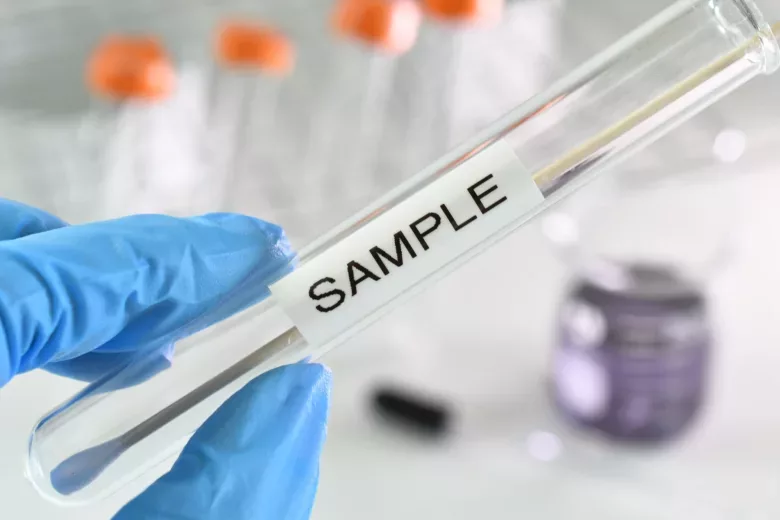With the rising number of STD cases on-the-daily, STD Panel Testing has become common in routine health check-ups of individuals. More and more people are being open to the idea of STI Testing without any apprehension after learning more about them. Therefore, to make things easier, we have compiled a list of commonly asked questions about the symptoms and tests of HIV and other STDs.
Common questions about HIV
- Are AIDS and HIV the same?
No. HIV is a pathogen whereas AIDS is an advanced infection that is a result of untreated HIV.
- Can HIV survive outside the body?
HIV cannot survive outside the body for very long because it is fragile and cannot survive at room temperature.
- How is HIV transmitted?
The three main ways of contracting an HIV infection are via unprotected anal and, vaginal sex, as well as sharing needles.
- Are in-home HIV tests accurate?
There is only one available in-home HIV test called OraQuick in the U.S. and has an expected accuracy of 96%.
- Do HIV symptoms in women differ from men?
HIV symptoms in women and men are not very different. Women, however, can contract bacterial vaginosis and candidiasis (yeast infection) in the genital tract.
Common questions about Chlamydia
- How can one contract Chlamydia?
Chlamydia is usually contracted via anal, vaginal or, oral sex with an infected individual. Unborn fetuses can also contract it from their infected mothers.
- How can one prevent contracting Chlamydia?
One can avoid contracting Chlamydia by abstaining from sexual activities. Sexually active individuals can prevent it by limiting themselves to only one bed partner who has tested negative for Chlamydia.
- How does Chlamydia affect babies?
If an unborn fetus contracts Chlamydia, it can result in an eye infection or life-threatening pneumonia.
- What are the symptoms of Chlamydia?
Chlamydia symptoms include abnormal penile or, vaginal discharge, swelling in testicles for men, and a burning sensation during urination.
- How to cure Chlamydia?
With the right antibiotic treatment, Chlamydia can be easily cured.
Common questions about Gonorrhea
- Is Gonorrhea common?
According to the WHO, nearly 27 million individuals at present are suffering from Gonorrhea.
- How is Gonorrhea transmitted?
Gonorrhea can be contracted through unprotected oral, vaginal, or, anal with an infected individual. Unborn fetuses can also contract it from infected pregnant women.
- How to prevent Gonorrhea?
One can prevent Gonorrhea by:-
- Correctly using condoms
- Avoiding any sexual contact
- Being in a monogamous relationship
- What are the symptoms of Gonorrhea?
Most individuals with Gonorrhea do not experience any symptoms. Ones who have symptoms can experience:-
- Irregular vaginal or penile discharge
- Pain while urinating
- Stomach pain
- Vaginal bleeding
- Swollen testicles
- How is Gonorrhea treated?
Gonorrhea can be treated with antibiotics (cephalosporins).
Common questions about Syphilis
- What are the different Syphilis stages?
There are four stages of Syphilis with the first two being very infectious. In the latent stages, it shows no visible symptoms but, if left untreated can lead to life-threatening issues.
- How is Syphilis treated?
The primary and secondary Syphilis stages can be easily cured with a penicillin shot. People allergic to Penicillin need to be treated with Ceftriaxone and Doxycycline.
- How can one prevent Syphilis?
Syphilis can be easily prevented by:-
- Using condoms and dental dams
- Having multiple sex partners
- Avoiding sharing of sex toys
- Getting tested
- Not sharing needles
- How does Syphilis affect fetuses?
Untreated Syphilis in pregnant women can result in:-
- Miscarriages, stillbirth, or premature birth in pregnant women
- Birth deformities
- Seizures
- Rashes
- Swollen spleen or liver
- Jaundice
- Anemia
- Infectious sores
Choose Affordable Rapid Testing, Arizona as the most reliable testing option
STIs can be contracted both with and without sexual intercourse and some even don’t show any symptoms. Therefore, to ensure that the dormant pathogens don’t do any further damage to your body, get tested. Affordable Rapid Testing is one of the best testing services in Arizona that offers all forms of testing options like Chlamydia testing. To know more about what they offer, visit their official website.


